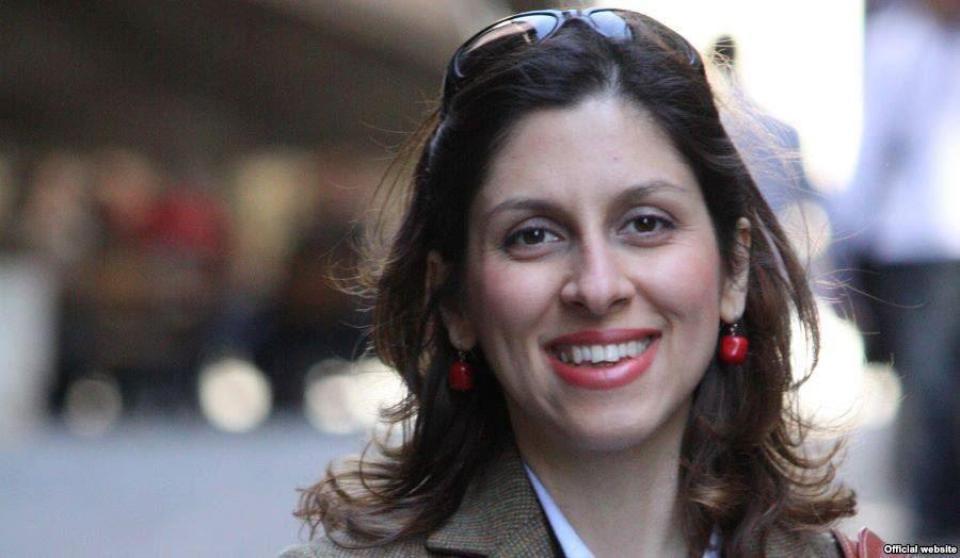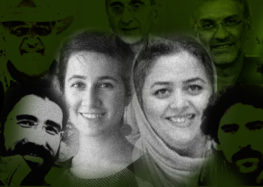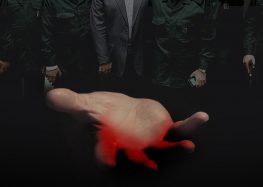Judge Tells Nazanin Zaghari-Ratcliffe That She’ll Remain Imprisoned Until UK Pays Debt to Iran
 A judge in Tehran has admitted that Iranian British dual national Nazanin Zaghari-Ratcliffe will not be released from prison until Iran receives payment for an old debt owed by Britain.
A judge in Tehran has admitted that Iranian British dual national Nazanin Zaghari-Ratcliffe will not be released from prison until Iran receives payment for an old debt owed by Britain.
“Judge Abbasi has confirmed what we have been suspecting for some time,” the charity worker’s husband Richard Ratcliffe told the Center for Human Right in Iran (CHRI) on July 24, 2018. “His statements confirm that Nazanin is being held in prison as a bargaining chip. But to express it so bluntly is shocking to us.”
“I believe Nazanin when she says she cannot take it anymore,” he added.
“On Saturday, 21 July, the Iranian judge in charge of parole and early releases confirmed to Nazanin that she will not be released temporarily, given parole, or shown clemency on humanitarian grounds until the UK government’s debt is repaid to Iran,” said a statement by the Free Nazanin Campaign on July 23, 2018.
Judge Abbasi [first name unknown], who is in charge of judicial affairs at Evin Prison, made the statement during a court session with Zaghari-Ratcliffe on July 21 while denying her request for temporary release to see her daughter on her fourth birthday.
Furlough, temporary leave typically granted to prisoners in Iran for a variety of familial, holiday, and medical reasons, is routinely denied to political prisoners as a form of additional punishment.
“You know they won’t send you on furlough, or give you parole, or give you clemency until the money is paid that the UK owes Iran,” said Judge Abbasi according to the campaign statement emailed to CHRI.
“I don’t understand why the UK doesn’t pay the money,” he added.
Zaghari-Ratcliffe’s daughter has been in Tehran living with her grandparents since her mother was detained in Tehran Imam Khomeini International Airport in April 2016.
Iran claims the UK owes it 300 million pounds ($394 million USD) plus interest because Great Britain never fully honored a 1976 deal to deliver hundreds of Chieftain tanks to the Iranian military. Iran paid the funds before its 1979 revolution and never received the tanks.
Zaghari-Ratcliffe was accused of committing espionage and sentenced under unspecified national security charges in 2016. The accusations were repeated in a news program that was aired by Iranian state-run TV in 2017 without substantiating evidence.
But now the judge’s comments have left little doubt that Zaghari-Ratcliffe’s imprisonment was politically motivated.
According to the Free Nazanin Campaign’s statement, after meeting Judge Abbasi: “Nazanin was taken back to the cells, and cried. She reported that her legs went numb again. The numbness stayed for the whole day. She spent the day feeling nauseous and sweating, and on a number of occasions throwing up. She reported her blood pressure was very low for most of the day, and that she had a strong headache. She had spent the day thinking about bringing it all to an end.”
On July 15, Zaghari-Ratcliffe spoke with the UK Ambassador to Tehran Rob Macaire for the second time on the phone from Evin prison.
She was seeking assurances that the resignation of former foreign secretary Boris Johnson would not cause a delay in her case and asked what the British government was doing to help her.
“He reported that the UK had discussed her furlough application with the Iranian authorities, and had also expected it would be granted. The ambassador told Nazanin that he thought it was ‘disgraceful’ that hopes had been raised and then it did not happen, and that he would make that point in the strongest terms. Nazanin also cried on the phone. She stated that at points she felt on the verge of a nervous breakdown and was taking an increasing number of pills,” the statement said.
A former staff member of the Thomson Reuters Foundation in London, Zaghari-Ratcliffe was expecting to be released from prison after Johnson’s visit to Tehran in December 2017.
She became eligible for early release according to Iranian law in November 2017. However, in May 2018 she was charged with “propaganda against the state” by Judge Abolqasem Salavati of Branch 15 of the Revolutionary Court in Tehran and ordered to hire a new lawyer.
At least 12 dual and foreign nationals as well as foreign permanent residents were imprisoned in Iran as of July 2018.






